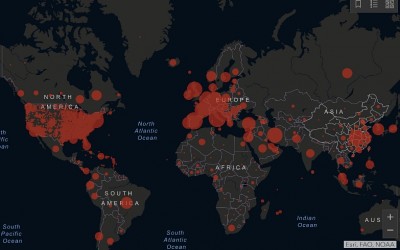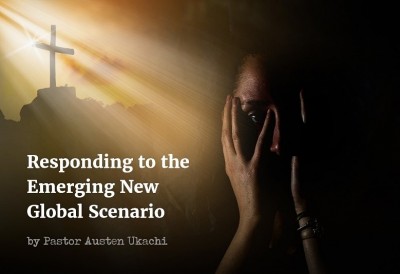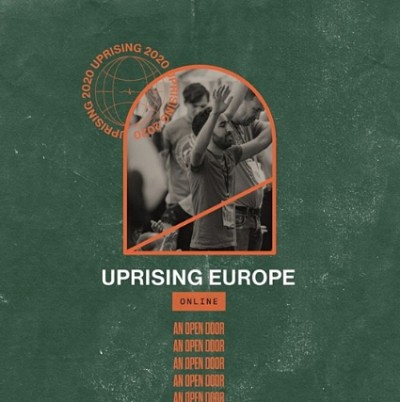Hi! my name is Hadassah Lawson and I’m the founder of Shaking and Shining Children Outreach. I started when I was 8 and now I’m 13. What inspired me was a vacation bible school I went to in the summer of 2015. I saw children get saved and wanted to do the same thing, share the gospel with children around the world.
That same year me and my family were going to Togo, West Africa. I asked my mom to how fast, then I fasted and prayed for three days that God would bring me at least 100 kids to share the gospel with them, and that they would share with their families and friends. At the end of the program I had over 250 children. After that I knew that I wanted to be a mission for the rest of my life. For the past 5 years I have been sharing the Good News with children around the world and also meeting their basic humanitarian and educational needs.
 I thank the Go2020 Kids Team for allowing me to be a part of this movement. What I love about being part of Go2020 Kids is knowing that what I do will leave an imprint for Christ, by inspiring kids to give their lives to Jesus and to share the gospel to others like them. My passion is to share the gospel with kids. I love seeing the joy people get when they hear it for the first time, the hope and courage the gospel can give a person is AMAZING! Being part of a group like Go2020 Kids lets me see the wonders that can be done with Christ by your side. I hope that I can continue working with groups like them and bring more souls to the kingdom of heaven.
I thank the Go2020 Kids Team for allowing me to be a part of this movement. What I love about being part of Go2020 Kids is knowing that what I do will leave an imprint for Christ, by inspiring kids to give their lives to Jesus and to share the gospel to others like them. My passion is to share the gospel with kids. I love seeing the joy people get when they hear it for the first time, the hope and courage the gospel can give a person is AMAZING! Being part of a group like Go2020 Kids lets me see the wonders that can be done with Christ by your side. I hope that I can continue working with groups like them and bring more souls to the kingdom of heaven.
I also like adults to see how to get children involved in the work of the kingdom of our Lord Jesus Christ. Acts 2:17 said: “And it shall come to pass in the last days, says God, That I will pour out of My Spirit on all flesh; Your sons and your daughters shall prophesy, Your young men shall see visions, Your old men shall dream dreams. The bible did not say that he poured out His Spirit on adults, it said on ALL FLESH; part of that flesh are children. I would like to encourage parents and grandparents to help your kids know that they will prophesy and have visions, that they are also part of advancing the kingdom of Christ.
 Challenge: Now that we're in May 2020, I want to challenge all the adults to have their kids memorize one scripture a week but, just don’t make them memorize the scripture - make it fun. You might be wondering how? So this is how we are going to do it. Each child has Monday to Friday to remember the scripture of the week. On Saturday, or Sunday (whichever you prefer) you talk about the scripture he or she is memorizing, and how he or she is using it in their life that week. After that he or she can make a poem, drawing, printing, story, play, whatever fun activity they want out of that scripture. They can share the activity or art with someone else and how they are using that scripture in their lives. And finally they can challenge others to do the same and use a scripture of their choice and share that with others. I hope you have fun with this new challenge.
Challenge: Now that we're in May 2020, I want to challenge all the adults to have their kids memorize one scripture a week but, just don’t make them memorize the scripture - make it fun. You might be wondering how? So this is how we are going to do it. Each child has Monday to Friday to remember the scripture of the week. On Saturday, or Sunday (whichever you prefer) you talk about the scripture he or she is memorizing, and how he or she is using it in their life that week. After that he or she can make a poem, drawing, printing, story, play, whatever fun activity they want out of that scripture. They can share the activity or art with someone else and how they are using that scripture in their lives. And finally they can challenge others to do the same and use a scripture of their choice and share that with others. I hope you have fun with this new challenge.
Have fun and stay safe.
Bye!
Watch Hadassah’s Testimony Video: https://www.youtube.com/watch?v=nQA6YUStuWs
More about Shaking & Shining Children Outreach: https://shakingandshining.org/
This table helps us see what we sometimes miss. There are more than 2 billion children under the age of 15, almost 26% of the world’s population.
India has the most with more than 376 million. It is a major focus for Go 2020 Kids.
More than 41% of Africa is under 15. Only 3% are over 65.
You can download the document Children by Nation to see where the children live.
Many have found it helpful to focus their prayers.
Download the full listing here: http://ipcprayer.org/images/Children-by-Nations-2020.pdf
More interesting information to guide our prayers for children from the UN: https://www.un.org/en/sections/issues-depth/children/
Core Values:
- Love is the Greatest Super-Power
- Jesus told us to Go – To share His love with everyone, everywhere
- Jesus said, Let the little children come to me, and do not hinder them, for the kingdom of God belongs to such as these. (Matthew 19:14)
- There is no Junior Holy Spirit
- The 2+ billion children in the world under age 15 are the great “untapped” harvest force
- God is fulfilling His word, He will turn the hearts of the parents to their children, and the hearts of the children to their parents; or else I will come and strike the land with total destruction. (Malachi 4:6)
Question: What is the Go 2020 Kids “Good News” Super Challenge?
It is a challenge for children to, “Share God’s love – The Greatest Super-Power – with someone who needs it today.”
How can we share God’s love – especially now during this “Social Distancing” time?
- Reach out to people who are afraid and let them know you care by praying for them
- Invite them to be a Prayer Covenant for Children Prayer Partner with you
- Help others know that God loves them by sharing stories or videos
- Share your story or God’s story with others using tools like the Jesus Film for Children or The Best News Ever
- Identify the best way to pray for or share with others within your ministry “family.”
- Go 2020 Kids Tool Kit - https://www.go2020usa.com Under Resources
- Go 2020 Kids YouVersion App – https://my.bible.com/reaching-plans/19639
- Jesus Film for Children on the free Jesus Film App
- Become like Hadassah and do your own VBS
- Teach the Children how to use the tools you use like the Wordless Book
- Ask the Super-Coach what he wants you to use
Structure for Go 2020 Kids “Good News” Super Challenge
Create some excitement and motivation with an Olympic challenge for Kids with different suggested categories - but with some flexibility for children to be creative.
Let the different “families,” i.e., ministry tribes, determine how to engage within their family and existing structure.
We will work to develop a “Coaches” resource platform to help parents, grandparents, children’s ministry leaders and others discover “best practices” to coach their children to engage.
Capture the stories of “God at work” in and through the children and share them.
- Post them on the Go 2020 sites and, hopefully, on a Go 2020 Kids Landing Page (under construction)
- Create ways for kids to share these stories with others using “social networking”
Let children inspire other children to be part of the Go 2020 Kids Good News Super Challenge
- How God’s love is the Greatest Super-Power
- How God loves to use children to bring His love to others
- How they can hear God’s voice and be part of His mission – now
We will work to identify key influencers who can help to cast the vision and encourage the children
- Christian athletes
- Christian musical artists
- Christian community leaders
- Pastors
New Wine and New Wine Skins
- God’s heart for children is bigger than our current wine skins
- God wants the 2+ billion under 15 to know him and be on mission with him
- Children love to be included and they love challenges
- Children have relational DNA
- Children don’t know what they can’t do yet and are not hiding behind masks
- There is no Jr. Holy Spirit
- An Olympic kind of challenge that invites them to participate has huge potential
- A coaching model for parents and others can help us embrace children as the agents of mission verses the objects of mission
- Letting the different “tribes” use their own tools will invite “ownership”
- Perhaps an Olympic kind of competition will create a kind of “viral” spread
- Tribes against tribes
- Communities against communities
- Nations against nations
Critical Action Points
- Develop Effective Communication Platforms
- Build A Leadership Community with Global Capacity
The Current working group:
- Go 2020 Kids Team (Global)
- Other Global and Local Prayer and Mission Networks
A prayer report looking at Covid-19 Hot Spots, Flattening the Curve, and Hopes for a Vaccine with links to resources
As of the May 26, almost 5.6 million people have been infected by the novel coronavirus globally according to ECDC. Moreover, more than 350,000 have died from the disease based on data from John Hopkins University.
Covid-19 hot spots
The UK has the second highest number of deaths worldwide. And the countries with the most number of confirmed cases are the US (1.6 million), Brazil (331,22), and Russia (362,342). However, these numbers are inaccurate assessments of the virus' impact on a nation.
For one, US has a population of 330 million people, which is roughly equivalent to that of the five largest Western European countries combined.
If we are to look at a country's case-fatality ratio--the number of deaths per number of confirmed cases--Belgium, France, Italy, the UK, and the Netherlands top the charts among the 10 countries most affected by the Covid-19 worldwide, with death rates ranging from 16.2% (Belgium) to 12.8% (Netherlands).
When it comes to deaths per 100,000 population, Belgium, Spain, UK, Italy, France, and Sweden are leading.
According to a BBC article, we should be careful when making international comparisons. There are differences in how countries record Covid-19 deaths. There are different ways of measuring death rates. Different countries are testing in different ways such that a wider testing program can make death rate look smaller. We are not always sure if we're comparing the same things.
Has the curve flattened?
In the US, 50 states have now at least partially reopened, according to The Washington Post. "But many of them don’t meet federal benchmarks on when it’s safe to reopen, sparking fears of new surges of infection."
Moscow is reportedly about to ease coronavirus restrictions starting Monday, June 1. And there are plans to resume flights between Australia and New Zealand in early June.
Compliance to safety measures are not the same in each nation and we must continue to pray for wisdom and grace as governments try to balance between protecting their economies and supporting their healthcare system.
However, there are countries that are succeeding at flattering the curve
Lessons can be from Taiwan, Canada, South Korea, Georgia, and Iceland, with strategies like early response to the virus and exemplary mass diagnostic testing and contact tracing. Graphs form John Hopkins University seem to show too that the curve is levelling off in some countries.
Vaccine update
"A US company has begun vaccine trials on humans in Australia. The results of the first phase of clinical trials in Melbourne and Brisbane are expected to be known in July." This is just one of several companies racing to find a vaccine against the novel coronavirus.
Let us continue to declare that the novel coronavirus is defeated by the blood of Jesus.
We pray for divine intervention and for God's name to be glorified even as each nation and government tries its best to flatten the curve and finally arrest this epidemic.
We release wisdom, skill, and integrity upon our leaders.
We pray for protection, wisdom and strength, for those working to bring treatment and comfort to the sick and their families.
We pray special grace and help for the vulnerable population and nations. We pray for refugees and displaced peoples. We pray against domestic violence and other crimes that have become rampant during lockdowns.
We pray for a safe, effective, and affordable vaccine to be released soonest.
We continue to release faith, hope, and love over the peoples of the world. May the Church seize this opportune time to manifest Jesus our Lord and Savior to those who are seeking answers and peace.
Reporting from John Hopkins University: https://coronavirus.jhu.edu/data/mortality
Further data on Europe and the world: https://www.ecdc.europa.eu/en/geographical-distribution-2019-ncov-cases
Pray: Lord God, the One who has Almighty power, we agree according to your promise in Matthew 18:18-20 that this virus will be stopped in its tracks. That the medical researchers will get a download from Heaven on how to quickly develop a vaccine to counteract COVID-19 and a cure for those who have become infected.
We also agree in prayer, asking that the Body of Christ worldwide will rise up in love and boldness, trusting in your blood to cover and protect us and throwing off fear, so that we can be available to serve, bless, and bear witness to those around us who are terrified and depressed at being infected.
Let us seize this unprecedented opportunity to make you known to those without hope in Christ!
Thank you for your promise that surely, you will be with us "always, even to the very end of the age” so that we can carry on with the mission you have given us for our world (Matthew 28:20).
Join in Online Prayers:
World Prayer Centre, Birmingham, UK – Virtual House of Prayer
iHop Kansas Prayer Room
247 Prayer Coronavirus Prayer Room
Additional Prayer Resources for Coronavirus
A coronavirus prayer from Pete Greig
19 Things to Do in response to Coronavirus
Prophecy Today UK’s Responses to Coronavirus
PrayerCast Video and Prayer Briefing
CSM Nigeria Article
Lausanne Resources
Operation World EBook on the impact on Mission
WW11 Veteran Gets 180k Praying
Relief and recovery after Cyclone Amphan displaces 3 million in Bangladesh and India
Super Cyclone Amphan, the "strongest storm ever recorded over the Bay of Bengal, hit the border of India and Bangladesh straight like an arrow last Wednesday. Thankfully, Indian and Bangladesh governments had been quick to evacuate some 3 million people to cyclone shelters before the storm made landfall, helping save many lives.
As of May 23rd, the death count was at least 95, around 25 are from Bangladesh and 70 from India. Not discounting the lives that were lost, we are thankful that this super cyclone did not claim hundreds of thousands as is the case with Cyclone Bholo, to which its potential havoc had been compared earlier.
However, despite this win, the cyclone did not depart without first destroying homes, sources of livelihood, and other properties.
In Bangladesh and India, around 2 million and 1 million were evacuated, respectively, amidst the challenges of physical distancing and other precautions that needed to be observed due to the Covid-19 pandemic.
Bangladesh has 30,000 confirmed Covid-19 cases while India has more than 125,000.
Nevertheless, this tragedy is not yet over. Millions of evacuees are now in make-do communal shelters where physical distancing and hygiene protocols may be compromised. Not to mention, sources of food and provision have been disrupted and damaged.
Agriculture and fishing account for almost half of the jobs in Bangladesh and support more than 70% of the population, according to the Asian Development Bank.
A team from the UN World Food Programme (WFP) has conducted a Rapid Needs Assessment. Early findings suggest damage to fisheries especially to smallholder shrimp farmers. Thankfully, most crops had been harvested before the cyclone hit.
Let us pray for the efficient and sufficient deployment of relief for all affected families especially the refugees and most vulnerable among them.
Let us also lift up the UN World Food Program, the Bangladesh and Indian governments, and other humanitarian organizations that are in the position to reach these displaced families with aid.
Protecting Bangladesh
Bangladesh has long known its needs to improve its defences from storm surges like Amphan as these can damage livelihoods in rural areas where more than 80% of its poor live.
In fact, the Bangladesh government started raising funds for its Delta Plan 2100, an eight-decade program that hopes to strengthen its climate resilience, and which had been approved in 2018. Almost a third of Delta's first-phase budget "is earmarked for 23 coastal projects to prevent flooding, including land reclamation and building islands and polders."
However, “The government will have to prioritize the immediate response and recovery effort over longer-term development projects," according to an Asia analyst.
According to Shamsul Alam, the lead author of the Delta Plan, “The coronavirus is one truth we’re facing now and climate change is another,” he said. “We need to handle these two issues in a combined way."
Please pray for the 3 million or more displaced individuals. Many of them are refugees and do not have anyone else they can turn to for help. Pray for hope, healing from trauma, and for God to provide for their every need.
Pray for protection from the spread of the coronavirus. Pray as well for God's intervention for both short- and long-term problems that Bangladesh and India are facing.
Pray for the witness of the Holy Spirit especially to those who are in most need of Him. Pray for opportunities for the gospel to be preached and lives to be touched by God.
Sources:
<https://edition.cnn.com/2020/05/19/asia/super-cyclone-amphan-india-banglash-intl-hnk/index.html>
<https://www.hindustantimes.com/world-news/cyclone-amphan-shows-cost-of-delaying-38-billion-bangladesh-delta-plan/story-SZ40tAZMFvyO33L1vOCwRN.html>
<https://news.un.org/en/story/2020/05/1064832?utm_source=UN+News+-+Newsletter&utm_campaign=933deb7c69-EMAIL_CAMPAIGN_2020_05_23_06_35&utm_medium=email&utm_term=0_fdbf1af606-933deb7c69-107378854>
A challenging article ‘for these times’ written by Pastor Austen Ukachi – Co-ordinator of IPC West Africa and member of IPC’s Exec Team
It is obvious that COVID-19 will permanently alter the way we live, travel and do business and ministry. The economic downturn, the remote working lifestyle, the glaring social and economic needs have raised the stakes for changes in the way people live, travel and work. COVID-19 has ignited spiritual and physical hunger. Spiritual hunger borne out of the desire for God’s help to live; and physical hunger borne out of the dislocation of the global economic system. People’s needs have become much more pronounced due to the threat on our lives, the level of unemployment and the collapse of businesses. As the Guardian Editorial wrote, “Though coronavirus leaves no part of the world untouched, its impact will be harshest in places that were already suffering. Yet the problems it brings with it may prove more deadly than Covid-19 itself. Even in the richest countries, coronavirus has left families in hunger; for the poorest, it could mean starvation." Against this backdrop, the words of Proverbs 22:3 is very timely.
“A prudent person with insight foresees danger coming and prepares himself for it. But the senseless rush blindly forward and suffer the consequences.” (TPT).
COVID-19 caught many leaders and nations unprepared, but certainly not our God. He knows the end from the beginning. He knows how he would achieve the end-time harvest. When danger, misery, and suffering comes knocking; when the high and mighty face the spectre of an unseen virus, people tend to listen and respond to the gospel. When people see all they have worked for and amassed fall apart, their disposition towards the gospel inevitably changes. Because COVID-19 will introduce a level of suffering many have not seen before in the world, especially in Third World countries, we must begin now to think and prepare for post COVID-19 era and all the human challenges it would pose.
What preparations do we have to make as individuals and as a Church to position ourselves to the changes which COVID-19 will inevitably throw up? Our response must be practical and cover such areas as healthcare, food, water, housing, security, counselling for the emotionally traumatized, training on strategies for survival and adapting to changing trends and opportunities. The degree to which these strategies will be applied will vary from region to region and country to country. In Matthew 9:36-39, when Jesus looked at the multitude, he saw them as “confused”, “helpless” and ripe for the harvest, but laborers were lacking. His advice then was, “pray to the Lord of the harvest to send labourers.” We must pray for the people who are traumatized by COVID-19 and for laborers with compassion to minister to them.
The post COVID-era will impose on us the need to care for one another, care for the poor, the unemployed and care for the weak and elderly. The Church, in order to maximize the end-time harvest, must preach a wholistic gospel that addresses the need of the total man. “And He will set the sheep on His right hand, but the goats on the left. Then the King will say to those on His right hand, ‘Come, you blessed of My Father, inherit the kingdom prepared for you from the foundation of the world: for I was hungry and you gave Me food; I was thirsty and you gave Me drink; I was a stranger and you took Me in; I was naked and you clothed Me; I was sick and you visited Me; I was in prison and you came to Me.’ “Then the righteous will answer Him, saying, ‘Lord, when did we see You hungry and feed You, or thirsty and give You drink? When did we see You a stranger and take You in, or naked and clothe You? Or when did we see You sick, or in prison, and come to You?’ And the King will answer and say to them, ‘Assuredly, I say to you, inasmuch as you did it to one of the least of these My brethren, you did it to Me.’” (Matthew 25:33-40 NKJV).
The Church must proactively think of healthcare related ministries, ways of addressing the healthcare needs of the people, especially in the developing world. The poor, the helpless, the destitute, women and children must be on our agenda. Meeting the felt needs of people will require the attention of counsellors, pastors and social workers. As we think about these, we must pray for the first responders who are the frontier workers and for resources to minister to the felt needs of the people. We must pray for the women and children who are the most vulnerable at such times.
Mission leaders must begin to think through how to do the work of missions with all the innovations and limitations which COVID-19 may introduce. The rise in unemployment will create the challenge of supporting the work of missions. Travel restrictions will affect movement of mission workers.
Like Joseph in Egypt, Daniel in Babylon and Solomon in Israel, Christian leaders, more than ever, need the wisdom of God to be able to navigate their followers through the murky waters of the post COVID-19 era. This is the time to heed to Paul’s timely words, “So be very careful how you live, not being like those with no understanding, but live honorably with true wisdom, for we are living in evil times. Take full advantage of every day as you spend your life for his purposes. And don’t live foolishly for then you will have discernment to fully understand God’s will” (Ephesians 5:15-17 TPT).
We must pray for wisdom and a discerning heart to know how to bring the gospel in these times. Like the men of Issachar, we must ask God to give us an understanding of the times so that we shall know what the Church ought to do at this hour (1 Chro.12:32). COVID-19 imposes on us the necessitate for unceasing prayers not only for ourselves, but for the fulfilment of the work of the kingdom. Our Lord Jesus captures what our attitude should be at such a time as this when he said, “Watch therefore, and pray always that you may be counted worthy to escape all these things that will come to pass, and to stand before the Son of Man.”” (Luke 21:36 NKJV).
Pastor Austen Ukachi
IPC West Africa | IPC Leadership Team
This email address is being protected from spambots. You need JavaScript enabled to view it.
The secretariat of the Caribbean Prayer Summit were encouraged by the participation of delegates from across the region in their fourth summit, which took place online due to the pandemic.
The theme was “A United Caribbean Church …a Regional Revival”.
The session recordings can be viewed online now at our website at www.caribbeanprayersummit.org
We will be circulating a report containing current prayer needs from the Caribbean nations shortly. Please contact us by email for further information at This email address is being protected from spambots. You need JavaScript enabled to view it.
Any gifts towards the overheads of the event can be made using the info online at: https://caribbeanprayersummit.org/give/
Sharon Hermitt/Secretary (for)
Rev. Maria Harbajan
CPS Convener/Member, CPS Secretariat
Member, International Prayer Council
www.caribbeanprayersummit.org
The United Prayer Rising Europe team are planning an inspirational and epic programme of worship, prayer and teaching across three days – 30th June and 1st and 2nd July. We believe God is going to release something special as we gather online together - in unity this summer. Prayer is key to any move of God, and we believe our prayers will shake the continent for Jesus once again.
Our vision this year is based on the theme of ‘An Open Door’. We aim to invite people across nations, generations and denominations - to open the door for a great move of God across Europe. We are expectant of tens of thousands of people being reached and taking part through the online UPRising Europe 2020 livestreams.
More info is at www.uprisingeurope.org and on social media at @uprisingeurope
Do join us!
JJ Waters - Event Director
UPRising Europe







